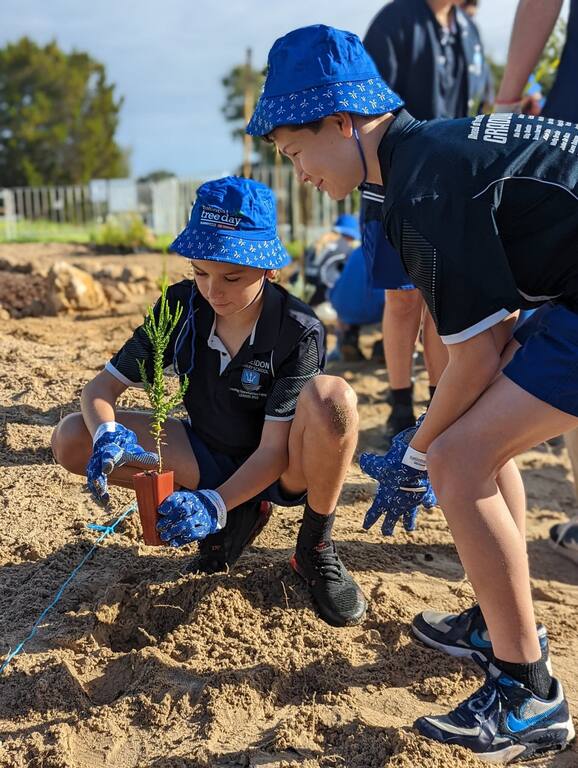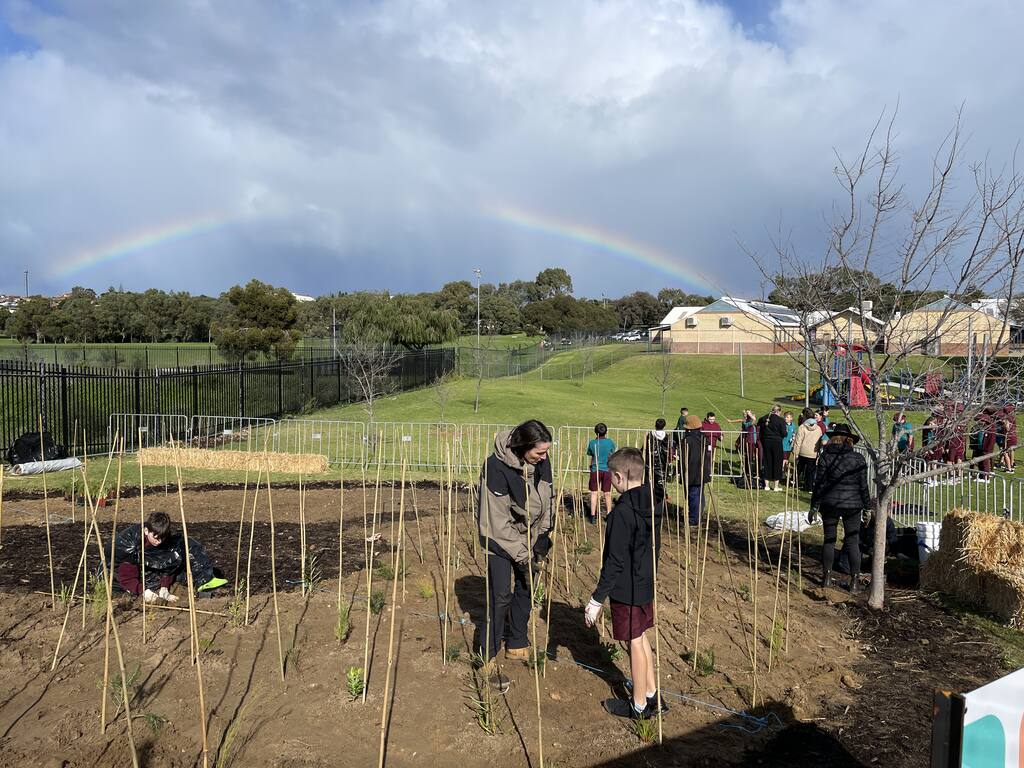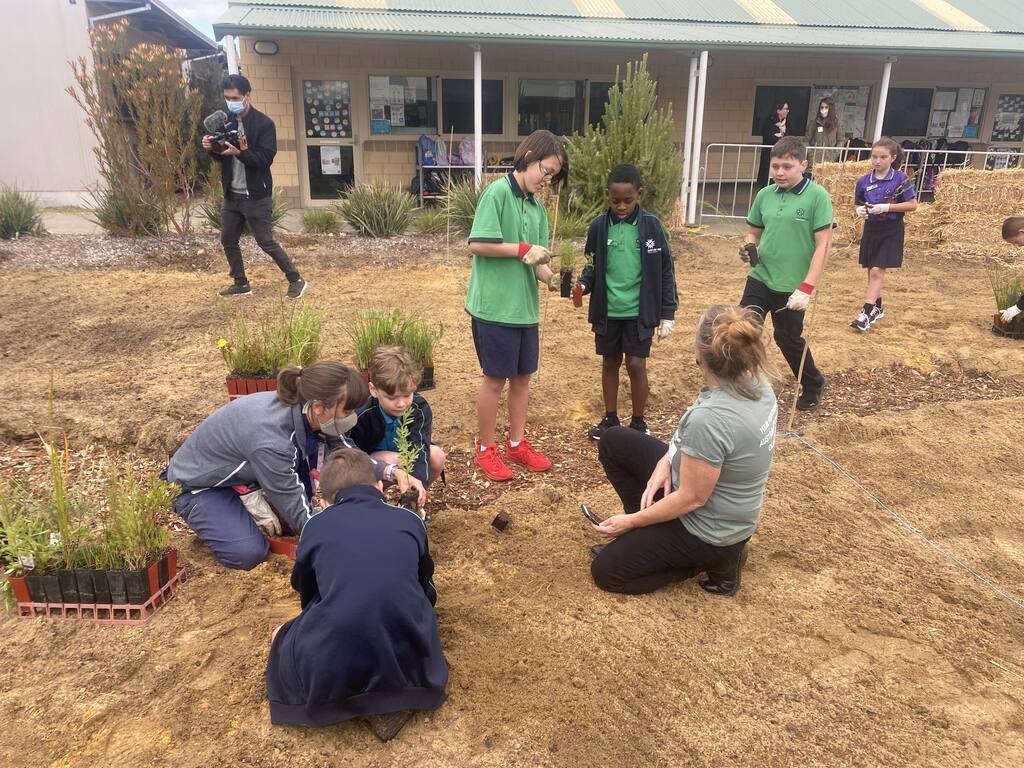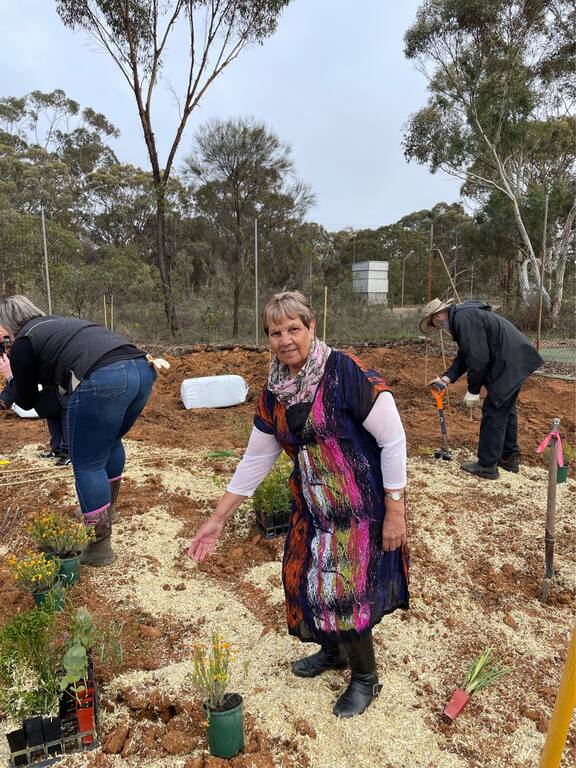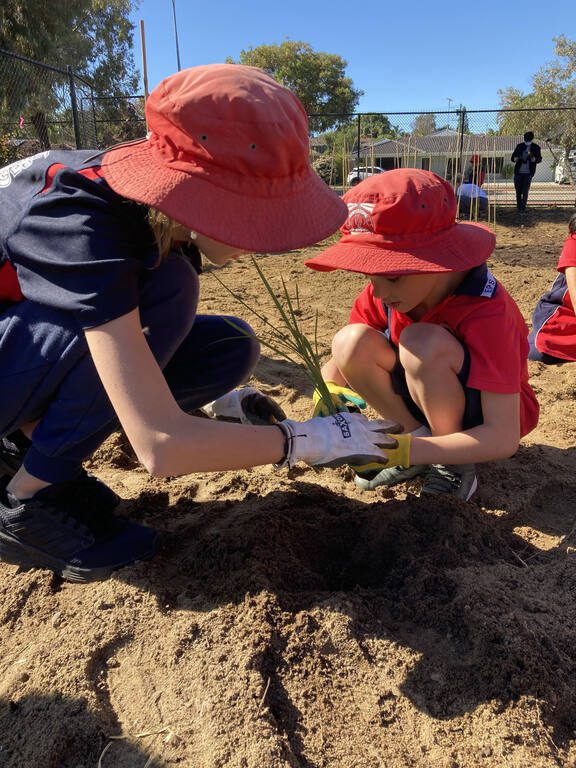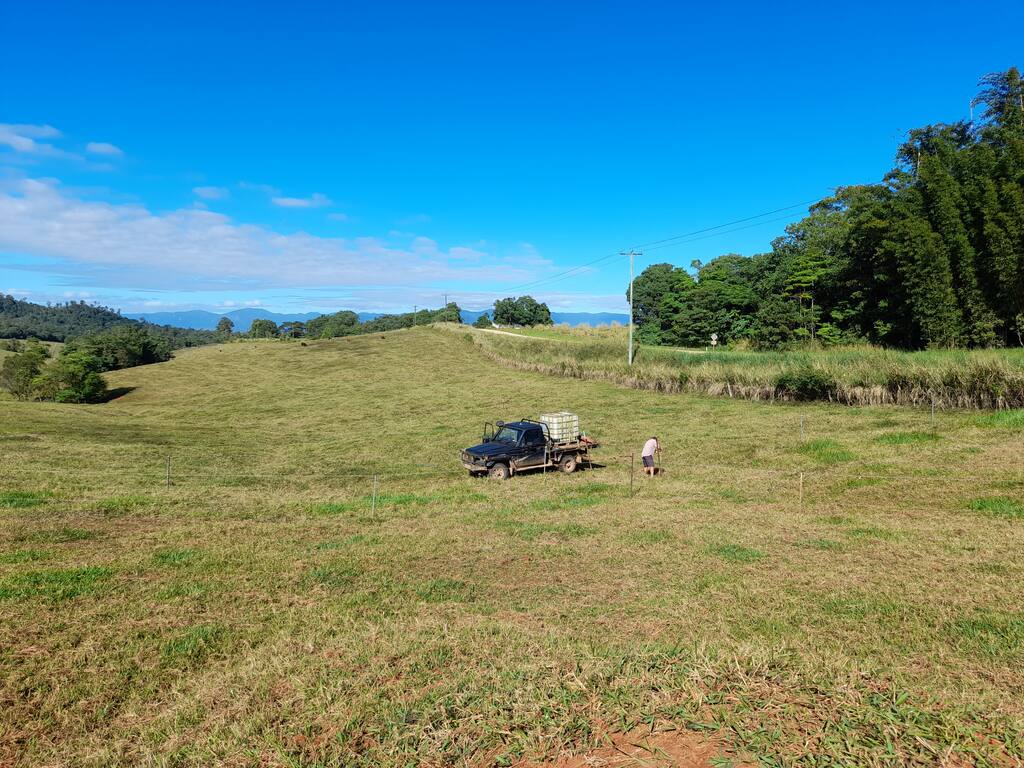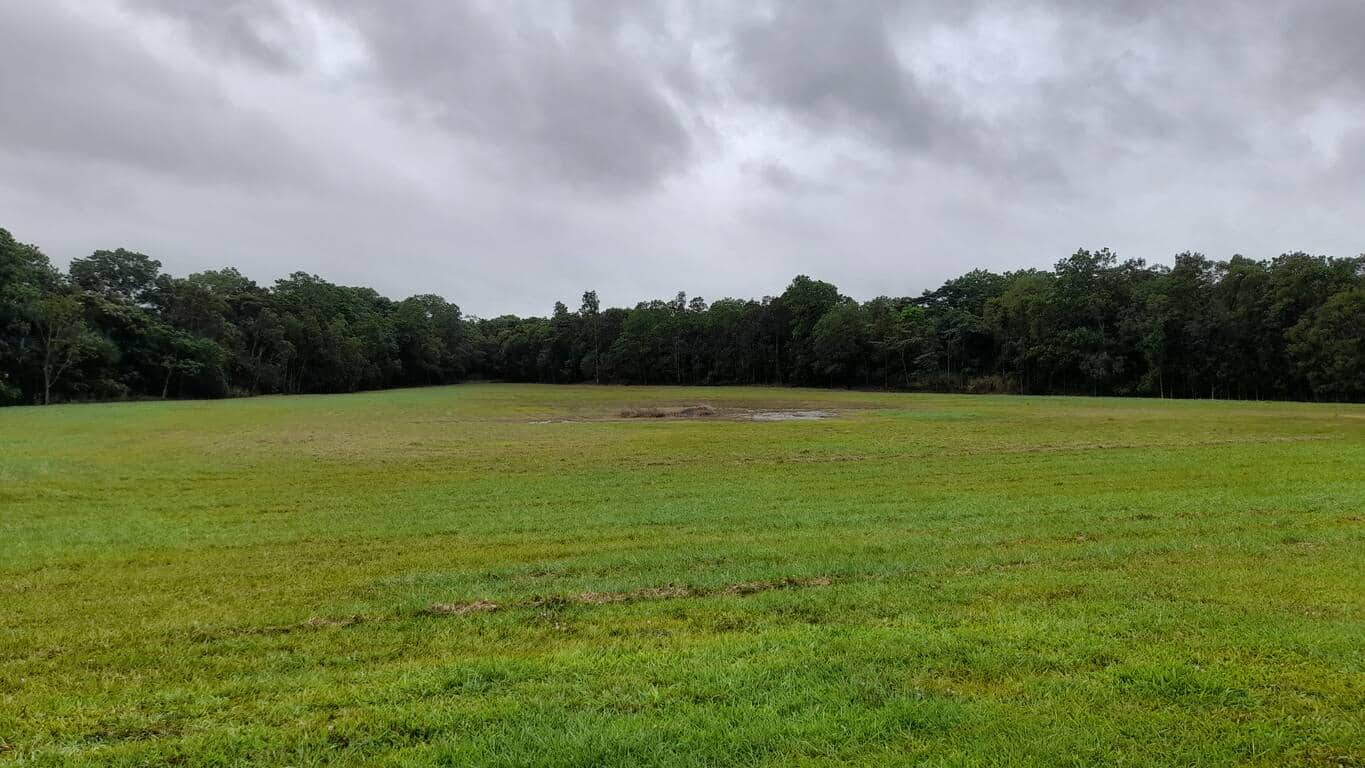Your Footprint. Australia’s Trees. Our Future.
Miyawaki pocket forests
Miyawaki pocket forests, named after their pioneer, Japanese botanist Dr. Akira Miyawaki,
were designed as compressed forests for small areas.
What is a Miyawaki pocket forest?
Ideal for urban environments, pocket forests created using the Miyawaki method are dense, biodiverse, and thrive on small sites. These forests enhance local health, reduce urban temperatures, and mitigate climate change impacts.
Advantages of native forests grown with the Miyawaki method include:
- Usually the size of a small tennis court, however, can be planted in a space as small as 3m2;
- High density plantings of approximately 3-5 plants per square meter, with a selection of 30 or more species that are endemic to the area.
- Mature up to 10 times faster than traditional reforestation methods;
- These high density plantings offer greater potential for carbon sequestration per square meter than a traditional forest;
- Foster up to 18 times greater biodiversity levels than traditional planting methods;
- Require no maintenance after their first two to three years.
Learn more about the benefits of Miyawaki pockets forests here.
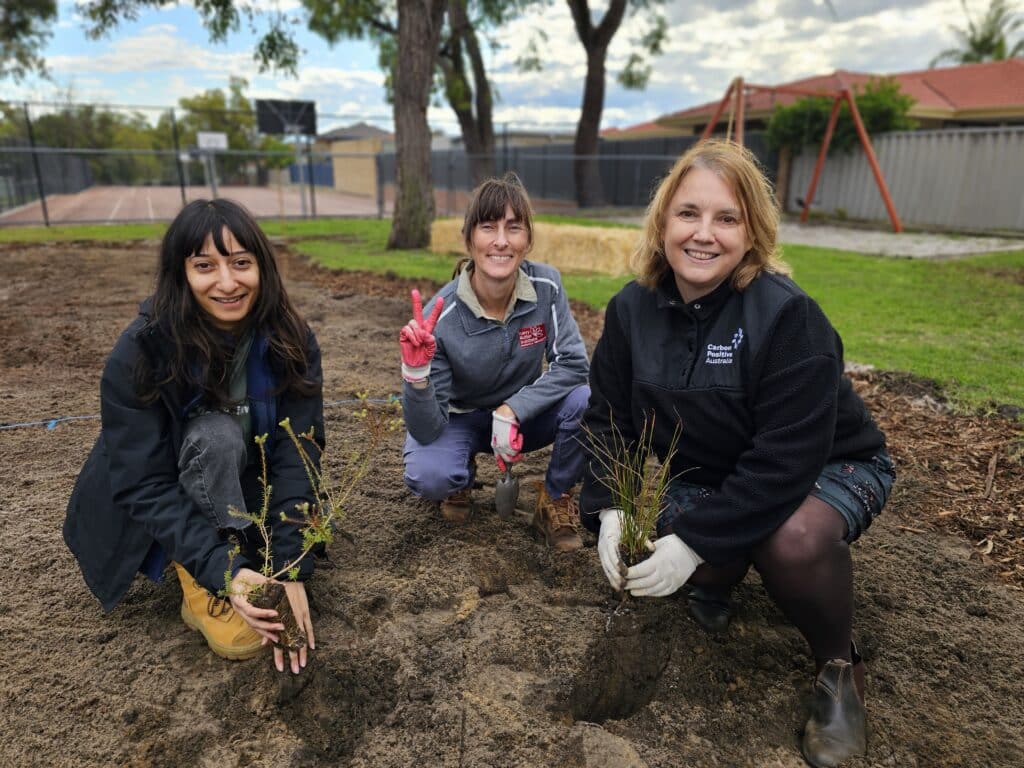
Help us get Miyawaki forests on the government’s agenda!
The WA state government is seeking your input while shaping the ‘Urban Greening Strategy’ for the Perth and Peel regions.
YOU can play a part in helping us combat these impacts by advocating for more pocket forests in our urban environments!
We’ve put together this template to make it easy for you to make your submission before the 7 June 2024.
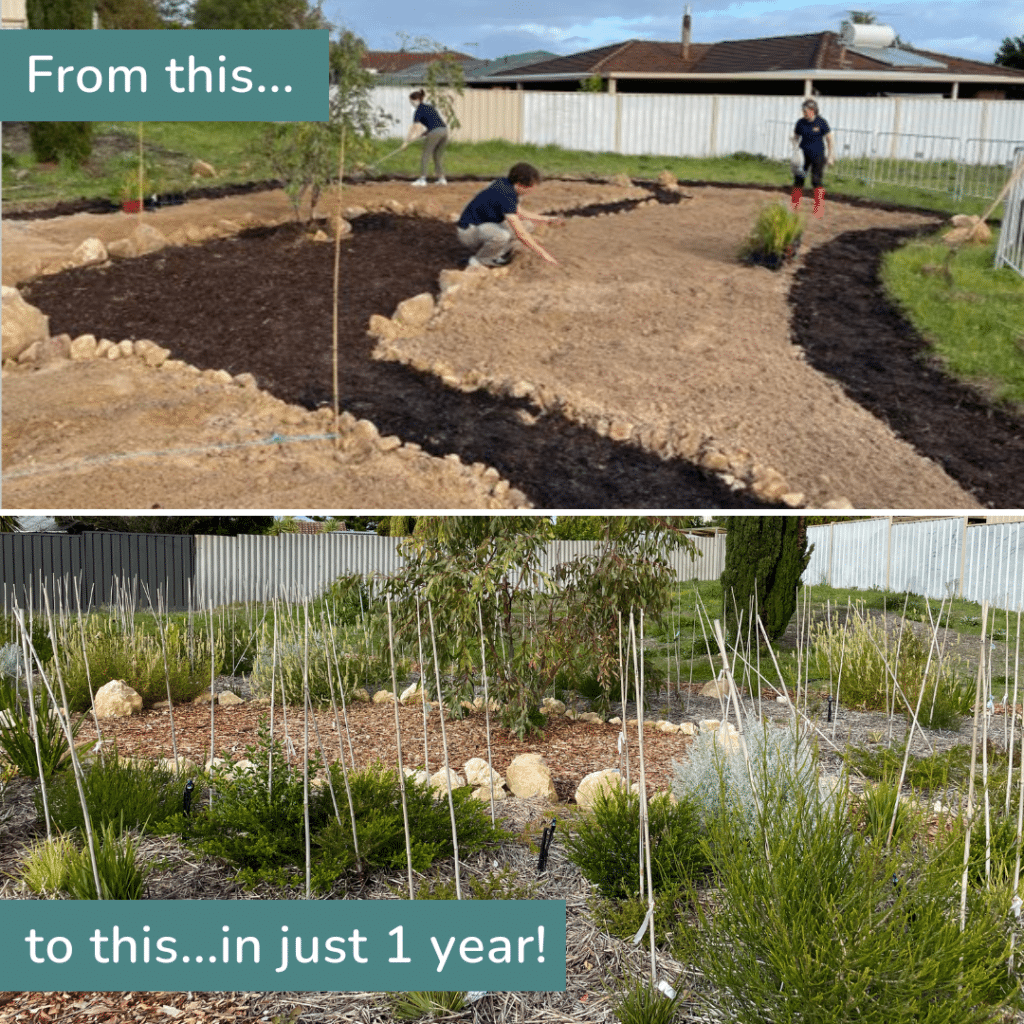
Miyawaki pocket forests
Small forests, big impact
Together, with the help of our donors we have…
Find out about the Miyawaki Pocket Forests
we are funding near you.
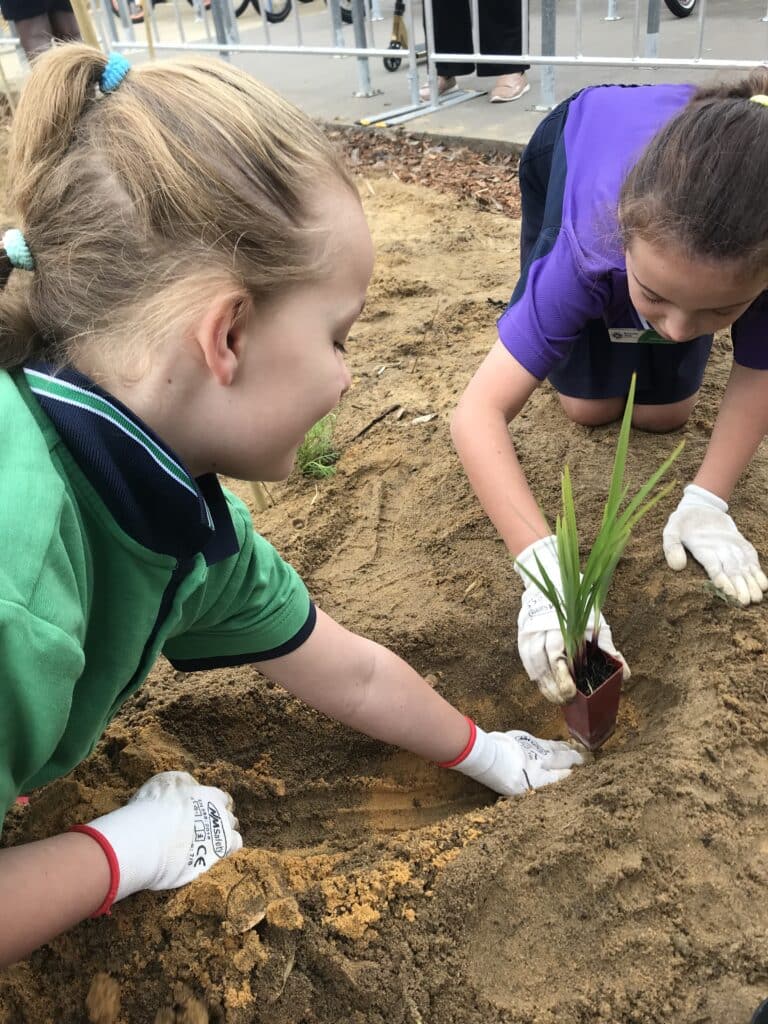
Miyawaki community and school pocket forests
We are working with Dr Grey Coupland (Harry Butler Institute) and the local community to develop Miyawaki pocket forests in urban areas that are particularly impacted by the urban heat island effect.
These fast-growing, dense, low maintenance native forests help to cool thermal hotspots, provide shade and amenity and can achieve canopy cover in just 3 years. They also provide habitat, reduce the effects of stormwater runoff, contribute to cooling the area, and help seed rainfall.
Looking to get involved?
If you’d like to support projects like these, please donate here.
If you have a Miyawaki forest project proposal and would like to discuss funding and planting options with us, please get in touch.

